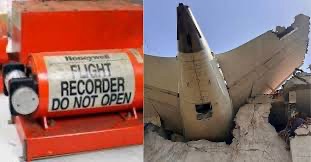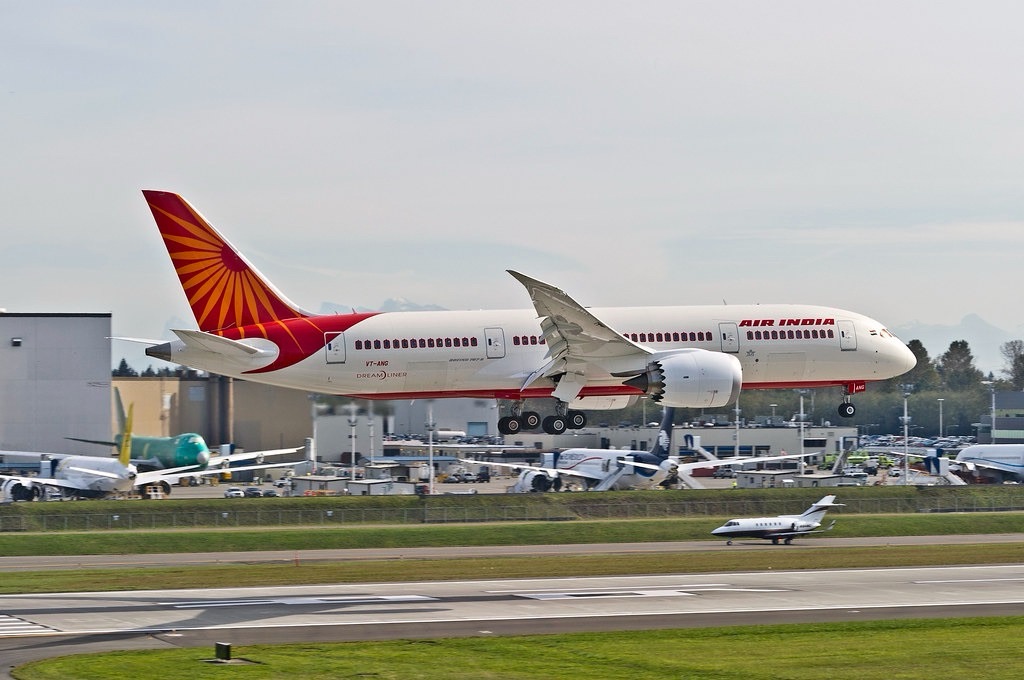Nearly two weeks after an Air India aircraft crashed in Ahmedabad, resulting in the deaths of 274 individuals, the government announced on Thursday that vital flight data from the plane’s front black box has been successfully extracted. On June 25, 2025, the Crash Protection Module (CPM) was safely located, and its memory module was accessed and the data downloaded at the Aircraft Accident Investigation Bureau (AAIB) laboratory.
The examination of the Cockpit Voice Recorders and Flight Data Recorders data is currently in progress. These initiatives aim to reconstruct the timeline of events leading to the incident and identify contributing factors to enhance aviation safety and avert future tragedies.
Recovery of black boxes
Both the Cockpit Voice Recorders (CVR) and Flight Data Recorders (FDR) were retrieved—one from the rooftop of a building at the crash site on June 13, 2025, and the other from the wreckage on June 16, 2025.
The devices have been secured under continuous police protection and CCTV monitoring in Ahmedabad.
Following this, the black boxes were transported from Ahmedabad to Delhi by IAF aircraft under strict security on June 24.

Investigation lead yet to be appointed
The AAIB has yet to designate a lead investigator to examine the accident. Experts suggest that this delay raises concerns regarding the effectiveness of the investigation process, which must be completed within a defined timeframe.
The International Civil Aviation Organization (ICAO) regulations specify that the investigator-in-charge of an air crash is responsible for the organization, execution, and supervision of the investigation. ICAO’s Annex 13, which provides guidelines for aircraft accident and incident investigations, also states that a preliminary report must be submitted within 30 days following an accident.
The Air India tragedy
The Boeing 787-8 Dreamliner, carrying 242 individuals and en route to London’s Gatwick Airport, lost altitude moments after taking off from Ahmedabad on June 12 and exploded in a fireball upon colliding with a medical college hostel.
Among those on board, there was one survivor, while the crash also claimed the lives of 19 individuals on the ground.
The death toll was lower than the authorities’ initial estimate of 270, but officials remained cautious regarding the final count.
Officials confirmed that the investigation will be conducted in a timely, transparent manner and will be based on verified evidence. The Ministry has requested media outlets to refrain from speculation. With international scrutiny on this significant incident, efforts are underway to ensure that all technical findings are precise and definitive. Public updates will be provided only after the collected data has been validated and reviewed by investigators.
As the black box data is subjected to thorough analysis, investigators aim to reconstruct the final moments of Flight AI171 and pinpoint critical failure points. This analysis will form the foundation for safety enhancements and future preventative actions. Officials emphasize the necessity of factual reporting and collaboration. The investigation is proceeding according to international aviation standards, with India reaffirming its dedication to safety and accountability in civil aviation.
Flying anxiety has surged in India following the tragic Air India crash.
“Fear of flying often relates to various aspects occurring on an aircraft – the noises, the motion, the vibrations… exposure therapy remains the sole remedy,” Dinesh, 55, informed Reuters during a visit to the facility where he showcased the connection between cockpit controls and the movements that frequently trouble passengers.

The center features a simulator for both Boeing and Cessna aircraft, designed to assist individuals in experiencing how landings and takeoffs appear from the cockpit, helping them realize that not every vibration or sound during flight indicates danger.
WhatsApp messages that Dinesh received and shared with Reuters revealed individuals expressing concerns about “losing confidence” after the crash, while others remarked that it was “too taxing on the mind.”
‘DEBILITATING ANXIETY’
Flying is generally regarded as a secure mode of transportation, and incidents during takeoff are particularly uncommon. The International Civil Aviation Organization reported that there were 1.87 accidents per million departures in 2023, according to its latest annual air safety report.
Among the nine hull loss accidents without fatalities recorded in 2024, only two occurred during takeoff, as per Airbus’ website.
A CCTV recording from Ahmedabad captured the Air India plane ascending to a height of 650 feet (198.12 m) after takeoff, but it abruptly lost altitude, crashing in a fireball into a nearby building — all within a minute.
The unsettling footage significantly contributed to the anxiety experienced by Indian travelers, according to five mental health professionals.
Individuals were seeking assistance due to insomnia or an obsessive fixation on flight updates, they noted.
Others expressed fear about allowing their loved ones to fly, lamenting “debilitating anxiety” for their relatives in transit, “to the point where they have been unable to concentrate on their daily tasks” as they constantly check messages to confirm their arrival, stated psychologist Pankti Gohel.
In Bengaluru, the $500 Cockpit Vista course spans 14 hours and is conducted by Dinesh, who managed ground operations during the undeclared 1999 Kargil war between India and Pakistan, retiring as an Air Force wing commander in 2014. He also offers to accompany anxious clients on their first flights following course completion.
Since the crash, numerous travelers are hesitant to fly with Air India, opting for alternative airlines, according to Jaya Tours, a mid-sized booking agency in Mumbai.
Acquired by the Tata Group from the Indian government in 2022, Air India continues to face criticism for inadequate service and an aging fleet. This year, the airline was also cautioned about operating three Airbus planes that lacked necessary inspection checks on escape slides.
The Indian Association of Tour Operators, representing over 1,600 agents, stated that overall flight bookings declined by 15-20% shortly after the Air India crash, with 30-40% of booked tickets also being canceled.
For all aviation-related guidance (DGCA ground classes, pilot training, cabin crew training)
Contact us https://contrail.in/
phone numbers +91 78457 69399


